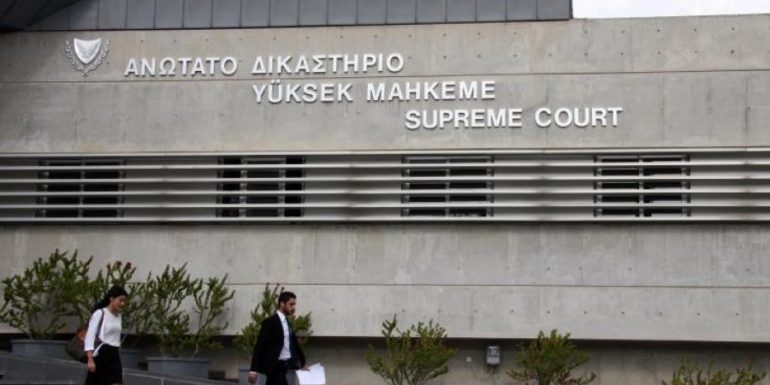The Supreme Court, following an appeal, reduced to two years the prison sentence imposed on TEPAK professor Costas Costas, for offenses committed in the framework of European Union funding for the implementation of European programs in which Cyprus, through the Cyprus University of Technology. (TE.PA.K.) participated as a partner.
For the same offenses the Criminal Court had imposed a sentence of four years in prison, for offenses of money laundering and also a joint prison sentence of nine months for the offense of abuse of power, in Rozita Pavlidou.
According to the court decision, Costa, with the above illegal acts, for the period 2011-2016, through 7 European programs, we helped to extract the total amount of € 197.311. Part of the above amount and specifically, € 22.500, came into his possession and from this he kept the amount of € 5.000. The rest of the amount was distributed to third parties. The amount of € 5.000 he had kept, he paid to the Unit for Combating Concealment Offenses (MO.K.AS).
In his appeal, Kostas cites health reasons, with the problems he faces having worsened during his detention in prison.
However, the decision of the Supreme Court does not attribute to the Department of Prisons and the state a breach of the obligation to organize its penitentiary system in such a way as to ensure the detainees 31 the respect of their human dignity. On the contrary, it was acknowledged by the defense, as above, that the management is doing everything possible to assist the appellant with impeccable behavior and assistance at all times. It is also important, as it was also acknowledged by the defense, that the management of the Prisons provided the appellant with a personal assistant for any of his needs. Nor has the staffing of the Prison Department by medical and paramedical staff been challenged in order to provide adequate medical care to the detainees.
On the other hand, it is stated that the medical council, although it found that the conditions of the Law for the application of the measure of the rest of the sentence with house arrest were not met, at the same time from the first time had also found "clearly" that the appellant suffers of Mediterranean anemia and the treatments he receives. The risk of deteriorating health is also found in the medical certificate dated. 6.10.2021.
The decision states that the deterioration of his state of health after the imposition of the sentence, under the extremely special circumstances of the case of the appellant, allows or even imposes as now more importance to be given to his state of health as a mitigating factor.
With regard to the allegation of inequality in treatment, it is stated that the sentence imposed on the appellant is not excessive. On the contrary, given the gravity of the offenses, the way in which those involved acted and the serious consequences of their long criminal activity, their sentences could be described as lenient. While it is acknowledged that Rozita Pavlidou had a leading role, in which she manipulated the appellant and was the one who received the financial benefit, in contrast to the appellant, who had virtually no financial benefit, it is not overlooked that the role of the appellant "no it was only important but it was absolutely decisive in achieving a serious criminal action, since if it was lacking the crimes could not be committed ".
Taking into account health reasons the sentence is reduced to two years in prison. However, it is stated that despite the appellant's health problems, in agreement with the Criminal Court, he should not be suspended for the remainder of his sentence, as he would give the wrong message and neutralize the need for a deterrent function of the sentence.
